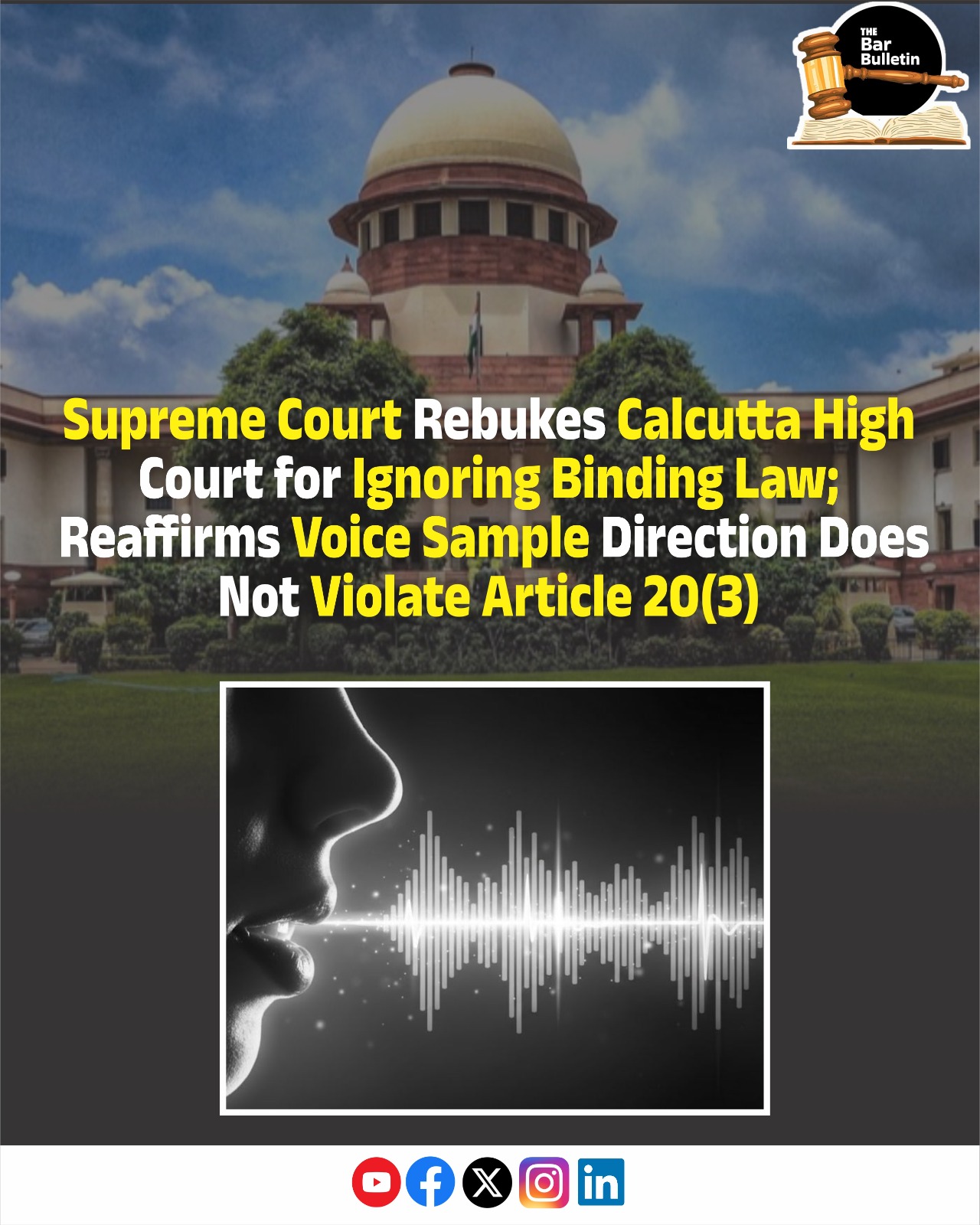The Supreme Court has strongly criticised the Calcutta High Court for “egregiously entertaining” a settled legal question and disregarding binding precedent while setting aside a Magistrate’s order allowing collection of a voice sample during investigation.
A Bench of Chief Justice B.R. Gavai and Justice K. Vinod Chandran, in Rahul Agarwal v. State of West Bengal & Anr., 2025 INSC 1223, restored the Magistrate’s order, reiterating that directing a person to provide a voice sample does not infringe the constitutional protection against self-incrimination under Article 20(3).
The case involved the death of a 25-year-old woman and subsequent criminal proceedings in which the investigating officer sought a voice sample from a respondent accused of threatening a witness. While the Magistrate permitted the request, the Calcutta High Court overturned it, citing a pending reference on the issue.
The Supreme Court held that the High Court’s reasoning was untenable, as the question had already been settled in Ritesh Sinha v. State of Uttar Pradesh (2019) 8 SCC 1, which recognised a Magistrate’s inherent power to direct voice sampling. The Bench emphasised that the ruling applied to “any person” not just an accused and that furnishing fingerprints, handwriting, or voice samples is not testimonial in nature and does not attract Article 20(3).
The Court also noted that this principle has now been expressly incorporated in Section 349 of the Bhartiya Nagarik Suraksha Sanhita, 2023, which authorises Magistrates to direct collection of voice samples.
Setting aside the High Court’s order, the Supreme Court restored the Magistrate’s direction, reaffirming that the law on this issue stands conclusively settled.
Appearances
Appellant: Mr. Dama Seshadri Naidu, Senior Counsel
Respondent No. 2: Mr. Ranjan Mukherjee, Advocate

